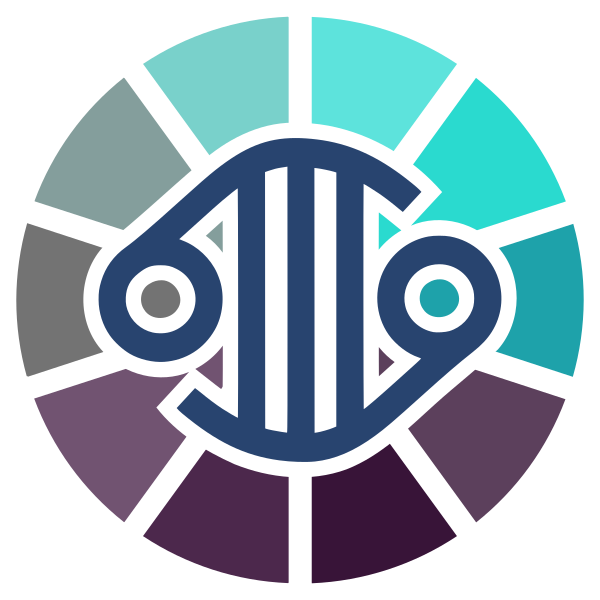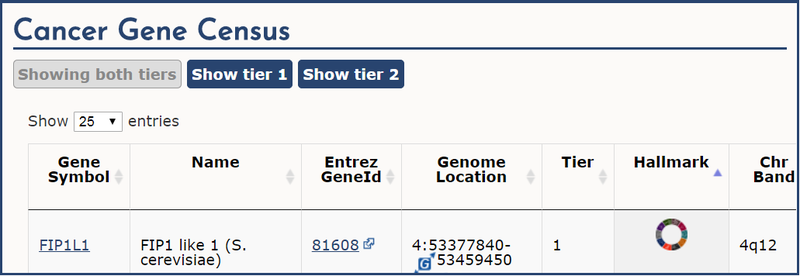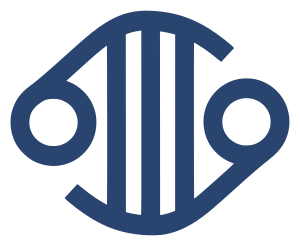
Cancer Gene Census changes
7 Nov 2017
As we mentioned at the last release, as part of integrating the Hallmarks of Cancer feature, the Cancer Gene Census (CGC) has had a thorough re-evaluation. These changes are now reflected in the COSMIC website, with the gene census table displaying which tier each gene falls into. By default, we display both tiers on the table but you can change this to reflect either tier 1 or 2 genes if you prefer, using the toggle switches. The complete list of current CGC genes can be accessed here.

There are precise criteria for each tier and each gene has been carefully evaluated based on the amount and quality of evidence supporting it as a driver in cancer. It should not be implied that the tier 2 genes are necessarily less important, just that at this point in time there is less substantial evidence to support their role in cancer. Further details of the criteria and the reasons behind the shifting of genes from tier 1 to tier 2 are available here.
As part of this process we have added 5 new genes to tier 1, these include, BARD1, IRS4, PIK3CB, POLD1 and POLQ. This brings the total number of genes in tier 1 of the CGC to 572. As new evidence is constantly published, curation of both the CGC and Hallmarks of Cancer feature is ongoing. We aim to keep you updated of key changes via the blog, with substantial changes published in the literature, however the full list, with all current details, is always available here.
Please note that there are a variety of other references to the CGC or Census throughout the website, many of which do not explicitly refer to the tier. In these cases we are always referring to tier 1 genes. If you have any queries or concerns you can always contact us at cosmic@sanger.ac.uk.
